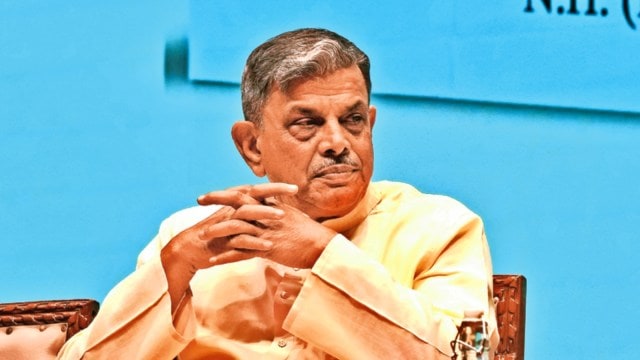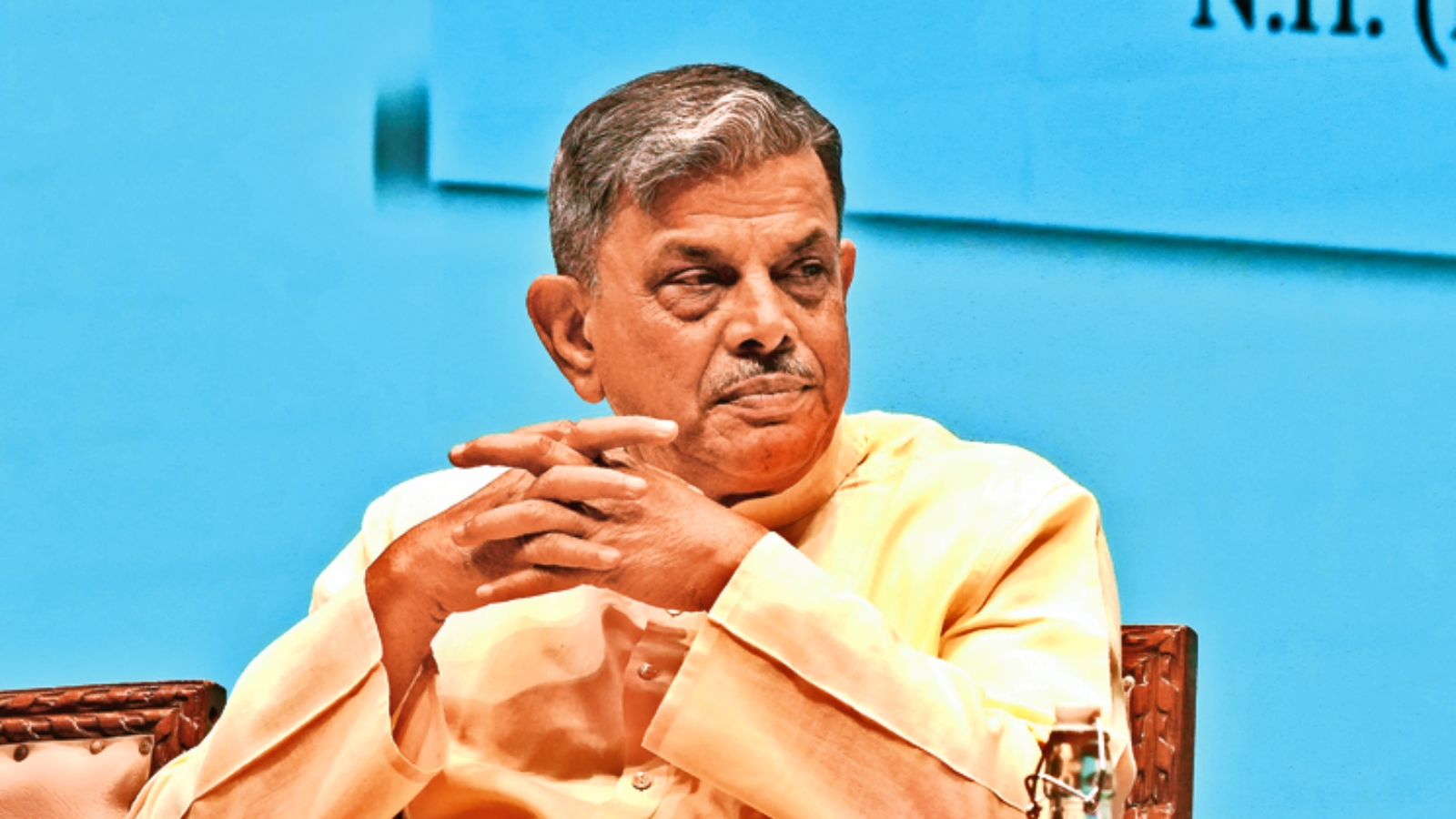
In the run-up to its centenary next year, the RSS will move into new quarters in Delhi, far more spacious than its original campus in Nagpur. Three towers, a dozen storeys high, are near completion in Delhi’s Jhandewalan. The central tower has four elevators, X-ray machines at entry points, a convention hall, offices and residential rooms. The CISF has been inducted for security checks. Top RSS functionaries, including second in command Dattatreya Hosabale and joint general secretary Arun Kumar, will officiate from the building, which is already operational. The first tower will house RSS-affiliated organisations, including publications Organiser and Panchjanya. The third tower is for guest accommodation.
With the RSS’s key decision-makers stationed in Delhi, will its headquarters in Nagpur, where sarsanghchalak Mohan Bhagwat resides, continue to remain its head office? Incidentally, at the recent closed-door session of the RSS meet in Palakkad, Kerala, Bhagwat had asked members to reduce their dependence on the government and not look at the RSS as a potential gateway for entry into the BJP.
Food for thought
The release of the series IC 814: The Kandahar Hijack has sparked fresh recollections of the chilling hijack. One interesting titbit not known is that the high-level team discussing the safe release of the passengers was regularly served Parsi food. Then External Affairs Minister Jaswant Singh later complained to a friend that by the end he was thoroughly sick of dhansak, a special Parsi dal. PM Atal Bihari Vajpayee’s birthday, December 25, was a day after the hijack and his friend, industrialist Nusli Wadia, customarily sent the gourmet PM vast quantities of choice Parsi fare. The festive cuisine came in handy during the long-drawn-out late-night discussions.
Joining the dots
PM Narendra Modi has been criticised for urging US President Joe Biden to use his good offices to impress on the Bangladesh government the need to protect the country’s minorities. India as the premier power in the sub-continent should have sufficient leverage in its own right, rather than supplicating to an outside super power, some argue. India, however, is realistic enough to trace the fingerprints of the US in the ouster of Sheikh Hasina and installation of Muhammad Yunus, a close friend of the Democratic party and the Clinton Foundation, as the chief adviser in Bangladesh. While Hasina had once claimed that the US antagonism towards her regime was linked to thwarted efforts to gain control of St Martin Island, an ideal military base strategically located to monitor Chinese movements over the Strait of Malacca, there were additional reasons for the US to adopt an unusually adversarial role towards Hasina’s government. The US was unhappy with Bangladesh for permitting the Chinese to build Asia’s largest submarine base at Cox Bazar and construct the Padma bridge. Russia’s funding of a nuclear power plant at Rooppur was another black mark against Bangladesh, which is near Myanmar, a military dictatorship with extremely close ties to China.
Indian security agencies have observed that the anti-Hasina student demonstrators who staged a coup were remarkably disciplined and not anti-India at the start. Neither the big Indian companies located in Bangladesh, nor the Indian government’s properties, other than one cultural centre, were targeted. The crowds that stormed the presidential palace later returned much of the loot, including cash. If the Indian government does not seem very rattled by Bangladesh’s demand to hand over Hasina, it is perhaps because the former Bangladesh premier is reportedly sheltered presently on the premises of a leading Western multinational company in India (In a leaked telephone call, Hasina stated that she was not in Delhi). Unfortunately, history shows us that the US Department of State often rides tigers that it cannot dismount. The recent attacks on Hindu homes and temples is an illustrative example.
On the same page
Arvind Kejriwal’s political gamble to dissolve the Delhi Legislative Assembly and hold early polls ironically actually corresponds with the wishes of the Delhi BJP. His hope is that the election would serve as a referendum to demonstrate that the electorate believes his innocence in the Delhi excise case allegedly foisted on him by the ED and that it will re-elect him as CM. Weeks earlier, a delegation of Delhi BJP workers met Amit Shah and requested that the Delhi Assembly polls, due next February, be advanced. One suggestion was to convert the Assembly back into a Legislative Council. The argument for an early poll was that the BJP would benefit from a split in the AAP and Congress vote (In Haryana, the two parties failed to reach an understanding). The BJP is confident of a victory after its impressive show in the Lok Sabha polls, where it got more votes than the AAP and Congress combined. A victory in the Capital will be a morale booster for the ruling party and detract from possible setbacks in the impending Haryana and Maharashtra polls.
© The Indian Express Pvt Ltd
First uploaded on: 22-09-2024 at 01:16 IST



